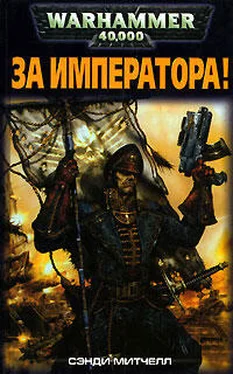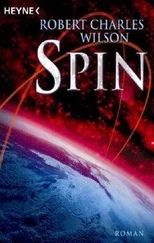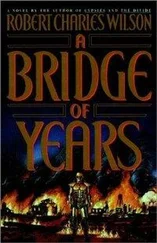Rust-colored light from the window reflected from Jason's blind, altered eyes.
"But he could have been lying."
"I don't know that he ever lied, Tyler. He was just a little stingy with the truth."
The microscopic replicators Wun had carried to Earth were cutting-edge synthetic biology. They were fully capable of doing everything Wun promised they would do. In fact they were more sophisticated than Wun had been willing to admit.
Among the replicators' unacknowledged functions was a hidden second subchannel for communicating among themselves and with their point of origin. Wun hadn't said whether this was conventional narrowband radio or something technologically more exotic—the latter, Jase suspected. In any case, it required a receiver more advanced than anything we could build on Earth. It required, Wun had said, a biological receiver. A modified human nervous system.
* * * * *
"You volunteered for this?"
"I would have. If anyone had asked. But the only reason Wun confided in me was that he feared for his life from the day he arrived on Earth. He harbored no illusions about human venality or power politics. He needed someone he could trust to take custody of his pharmacopoeia, if anything happened to him. Someone who understood the purpose of it. He never proposed that I become a receiver. The modification only works on a Fourth—remember what I said? The longevity treatment is a platform. It runs other applications. This is one of them."
"You did this to yourself on purpose?"
"I injected myself with the substance after he died. It wasn't traumatic and it had no immediate effect. Remember, Tyler, there was no way for communication from the replicators to penetrate a fully functioning Spin membrane. What I gave myself was a latent ability."
"Why do it, then?"
"Because I didn't want to die in a condition of ignorance. We all assumed, if the Spin ended, we'd be dead within days or hours. The sole advantage to Wun's modification was that in those last days or hours, as long as I lasted, I would be in intimate contact with a database almost as large as the galaxy itself. I would know as nearly as anyone on Earth could know who the Hypothetical were and why they had done this to us."
I thought, And do you know that now? But maybe he did. Maybe that was what he wanted to communicate before he lost the ability to speak, why he wanted me to make a recording of it. "Did Wun know you might do this?"
"No, and I doubt he would have approved… although he was running the same application himself."
"Was he? It didn't show."
"It wouldn't. Remember: what's happening to me—to my body, to my brain—that's not the application." He turned his sightless eyes toward me. "That's a malfunction."
* * * * *
The replicators had been launched from Earth and had flourished in the outer solar system, far from the sun. (Had the Hypotheticals noticed this, and had they blamed the Earth for what was in fact a Martian intervention? Was that, as E.D. had implied, what the sly Martians had intended all along? Jason didn't say—I presumed he didn't know.)
In time the replicators spread to the nearest stars and beyond… eventually far beyond. The replicator colonies were invisible at astronomical distances, but if you had mapped them onto a grid of our local stellar neighborhood you would have seen a continually expanding cloud of them, a glacially slow explosion of artificial life.
The replicators were not immortal. As individual entities they lived, reproduced, and eventually died. What remained in place was the network they built: a coral reef of gated, interconnected nodes in which novel data accumulated and drained toward the network's point of origin.
"The last time we talked," I reminded Jase, "you said there was a problem. You said the replicator population was dying back."
"They encountered something no one had planned for."
"What was that, Jase?"
He was silent a few moments, as if gathering his thoughts.
"We assumed," he said, "that when we launched the replicators we were introducing something new to the universe, a wholly new kind of artificial life. That assumption was naive. We—human beings, terrestrial or Martian—weren't the first sentient species to evolve in our galaxy. Far from it. In fact there's nothing particularly unusual about us. Virtually everything we've done in our brief history has been done before, somewhere, by someone else."
"You're telling me the replicators ran into other replicators?"
"An ecology of replicators. The stars are a jungle, Tyler. Fuller of life man we ever imagined."
I tried to picture the process as Jason described it:
Far beyond the Spin-sequestered Earth, far beyond the solar system—so deep in space that the sun itself is only one more star in a crowded sky—a replicator seed alights on a dusty fragment of ice and begins to reproduce. It initiates the same cycle of growth, specialization, observation, communication, and reproduction that has taken place countless times during its ancestors' slow migrations. Maybe it reaches maturity; maybe it even begins to pump out microbursts of data; but this time, the cycle is interrupted.
Something has sensed the replicator's presence. Something hungry.
The predator (Jase explained) is another kind of semiorganic autocatalytic feedback system—another colony of self-reproducing cellular mechanisms, as much machine as biology—and the predator is plugged into its own network, this one older and vastly larger than anything the terrestrial replicators have had time to construct during their exodus from Earth. The predator is more highly evolved than its prey: its subroutines for nutrient-seeking and resource-utilization have been honed over billions of years. The terrestrial replicator colony, blind and incapable of fleeing, is promptly eaten.
But "eaten" carries a special meaning here. The predator wants more than the sophisticated carbonaceous molecules of which the replicator's mature form is composed, useful as these might be. Far more interesting to the predator is the replicator's meaning, the functions and strategies written into its reproductive templates. It adopts from these what it considers potentially valuable; then it reorganizes and exploits the replicator colony for its own purposes. The colony does not die but is absorbed, ontologically devoured, subsumed along with its brethren into a larger, more complex, and vastly older interstellar hierarchy.
It is not the first nor the last such device to be so absorbed.
"Replicator networks," Jason said, "are one of the things sentient civilizations tend to produce. Given the inherent difficulty of sublight-speed travel as a way of exploring the galaxy, most technological cultures eventually settle for an expanding grid of von Neumann machines—which is what the replicators are—that costs nothing to maintain and generates a trickle of scientific information that expands exponentially over historical time."
"Okay," I said, "I understand that. The Martian replicators aren't unique. They ran into what you call an ecology—"
"A von Neumann ecology." (After the twentieth-century mathematician John von Neumann, who first suggested the possibility of self-reproducing machines.)
"A von Neumann ecology, and they were absorbed by it. But that doesn't tell us anything about the Hypotheticals or the Spin."
Jason pursed his lips impatiently. "Tyler, no. You don't understand. The Hypotheticals are the von Neumann ecology. They're one and the same."
* * * * *
At this point I had to step back and reconsider exactly who was in the room with me.
It looked like Jase. But everything he'd said was casting that into doubt.
"Are you communicating with this… entity? Now, I mean? As we speak?"
"I don't know if you'd call it communication. Communication works two ways. This doesn't, not in the sense you're implying. And real communication wouldn't be quite so overwhelming. This is. Especially at night. The input is moderated during daylight hours, presumably because solar radiation washes out the signal."
Читать дальше












